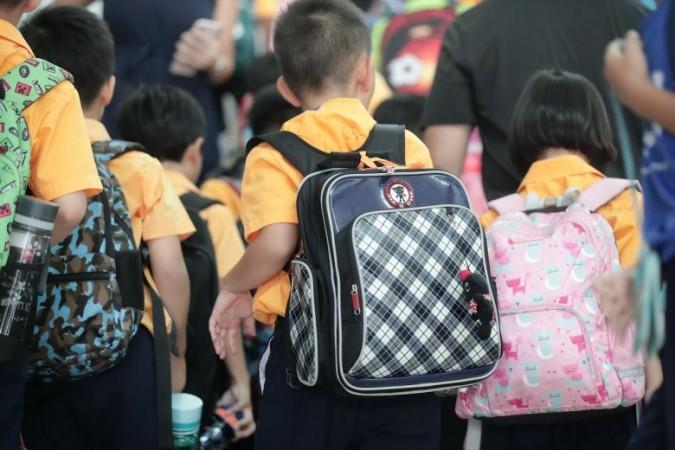At first, it was Mother's day celebration in 1908, followed by Father's Day in 1910; in 1969, Grandparent's day originated. In 1975, March 8 was declared Women's Day, and in 1992, fairly recently, November 19 was picked up as International Men's Day where all issues affecting men and boys can be addressed.
Stemmed and celebrated initially in the United States, these concepts soon made their way into other countries and hence, every year, a particular day was earmarked to honour mothers, fathers, grandparents across the globe. Largely pushed by commercial interests, these events eventually became a way to make mothers and fathers, grandparents feel good about themselves.
However, with more schools picking up such western concepts to build engagement with students and their families, the special day is turning out to be rather sour than fruitful for parents who are single either by separation or death of their spouse.

Single parents feel left out
On Father's Day this year, Charu, a single parent and mother of 8-year-old twins took to a school community page on social media to express how hurtful the day turned out for her family which also led to an important dialogue on sensitizing schools towards single parenting and inclusivity.
A parent on the group explained how her daughter who recently lost her father was left embarrassed when she was made to attend a surprise Father's Day celebration along with the entire class. The parent had no option but to log out of the session.
"Schools need to be sensitive that there are a lot of kids who have lost their fathers due to Covid-19. My kids didn't know their father for nearly 6 years and in the last one year, they have had a chance to interact with him. I have brought up my kids alone, every Father's Day, we have to decide whether we should attend the class or not," shares Charu adding, "It's not just about Father's Day, on Mother's Day, a single father might be going through the same."

Talking to International Business Times, she shares that the school this year asked all children to send a picture of them kissing their fathers. Her daughter decided to make a couple of drawings and email them across but they weren't included in the class video that showed all kids hugging/kissing their fathers.
"It may have been due to late submission or because it didn't fit in their theme of father's day," Charu says expressing that schools need to be sensitive and allow single parents to be part of the celebration irrespective of whether they are celebrating mothers or fathers.
Another parent shared on the group, "I do not send my daughter for Father's Day celebration, although I know she is strong but I don't want to push her buttons."
Parent policing, not a solution
While some parents are for avoiding such trigger points for their children, Charmaine Kenita, single parent to a 9-year-old feels such parent policing may hinder the wholesome development of the child.
"As single parents, we cannot always protect our kids from such hurdles. It's okay if these events are organized as it opens up a platform for dialogue and I prefer answering important questions now rather than leaving it for a later stage when it might have a greater impact on the child psychologically. My child is still in touch with her father but when we have our conversations, I try to make her understand that I am playing the role of both mother and father. A child will miss either parent only when he or she is made to feel a void or lack of something, if such a feeling doesn't exist, there might be no impact."
Educationists open to change, if nudged
Sandhya Vishwan, a single parent of two children who works in the field of education, feels more single parents need to come out and share their experience so that schools can find innovative ways to observe such international days. "For schools, it is a medium to engage with the child and parents in an informal way, their intention is never to hurt anyone's sentiments. We have had incidents in the past where single parents have informed us about the situation beforehand and we have found a way to make the day special for the child somehow. We encourage either of the parent or even grandparents who may be guardians to participate in the event."
The idea of family needs to be revisited
Author Ganesh Vancheeswaran who is also father to a young boy feels, "Conventional definition of a normal family must be tossed immediately. Children should not learn to believe that two parents with one or two children are the only way a family can seem normal. It is because of this notion that other family structures are considered broken or dysfunctional." He adds, "Even families with other structures such as single mom, single dad, separated parents can be happy and complete. Days like these are great occasions to talk to children about all this."
According to a 2019 report by UN Women, 4.5% of all households in India are run by single mothers, that's 130 lakh women. Another estimated 320 lakh single mothers might be living with extended families. While the data for single fathers in India aren't available, the number is expected to be lesser compared to the former.






!['He is done with the team now' : Angry Virat Kohli slams the bat, kicks the ground, yells at RCB team as SRH smashes runs [reactions]](https://data1.ibtimes.co.in/en/full/796956/he-done-team-now-angry-virat-kohli-slams-bat-kicks-ground-yells-rcb-team-srh-smashes.jpg?w=220&h=138)









